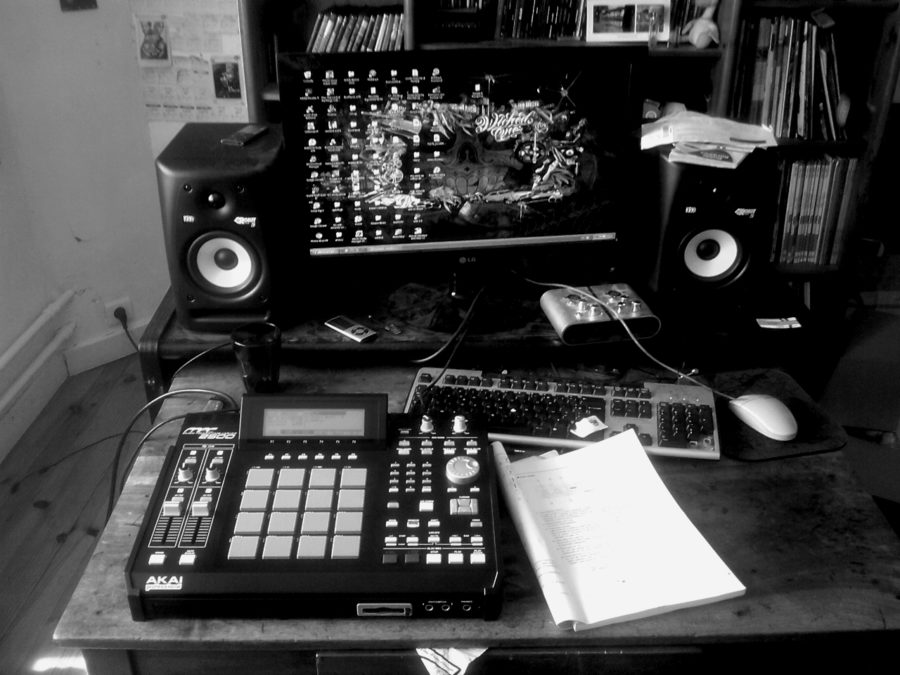Shiralkar: Underground industry movement type beat
January 23, 2021
Earlier this week, I was pretending to do some important work on Canvas when I decided that jazz music was no longer the day’s vibe. So, I started listening to a Playboi Carti type beat on YouTube; I have a playlist made of inspired instrumentals like these. Readers who are acquainted with me personally will, of course, be used to my unprompted raving about the Atlanta-based crooner. Regardless, I have my reasons for enjoying these artist-specific beats so much, just like thousands of other modern hip-hop fans. Be advised: there are quite a few YouTube links in this column.
“Type beats” are essentially instrumentals that are designed with an artist — or an exact set of artists — in mind. These type beats are intended to capitalize on the relevance of search engines. Established rappers and vocalists looking for beats could easily find beats they were looking for from a vast catalog of affordable beats offered online. Such ready availability, and the ease of the buying/leasing process via platforms like beatstars.com, has been the driving force behind a burgeoning underground movement in the music industry, simmering over the past few years.
After SoundCloud’s bolstering of low-key artists into the spotlight, the mid-2010s saw another movement taking root in the music industry. “I love the hills!” intoned in a suave female voice with a soft reverb is the tag of an online producer collective called T H E H I L L S. For more in-depth insights, I interviewed some producers who work with the group. @prodbycarlos, a producer with the group, said his earliest memory of making “type beats” was just for fun in late 2016, after getting a new laptop.
“[They were] inspired by SoundCloud sounds of producers like MexikoDro, StoopidXool and Pi’erre Bourne and Zaytoven,” he said.
T H E H I L L S, brainchild of beatmaker @prod.zest, joined YouTube in March 2019. The channel has amassed over 33,000 subscribers in under two years, with several videos well over the 100,000 view mark. For a group of artists only just making their way into the mainstream, this is quite an accomplishment. “@prod.jootsu,” another producer with the collective, also claims although the rise in his own recognition as a producer wasn’t really drastic, there was growth for sure.
“Joining T H E H I L L S did help,” he said, “especially since my [personal YouTube] channel was smaller then.”
It’s a trend that has seen producers go from being barely known to making six-figure incomes, the general idea behind making these beats being to get noticed and sell music easily. E-commerce sites dedicated to facilitating these transactions between musicians have put many producers in a good position to land an industry placement. @prod.jootsu made an instrumental called “brainstorm,” which was used by rapper THOUXANBANFAUNI for his track “Tennessee Titan.” The throwback bop “Panda” by Desiigner came to be via one of such placements.
In response to my question about the loyal fanbase that’s always hyping them up in the comment section of videos, @prod.zest confirmed it is all immensely motivating.
“The support,” he said, “shows that we can be actually a top producer collective in the industry.”
Other beat-making collectives, like Internet Money, are also proof of this. Birthing mainstream Billboard hits like Lil Tecca’s “Ransom” and Juice WRLD’s “Lucid Dreams,” the type-beat path has a solid track record for success. It’s also a popular Internet term for imitation.
The aesthetic quality of these tracks is also important. Associating them with beautiful graphics that include stills and stock images of high-fashion designer clothing, expensive luxury cars, diamond-studded watches and other flashy visuals, the producers have a lot of fun making these beats, which usually have catchy titles.
“It’s all about fun, and there’s a lot of positivity behind it,” @Prod.Reset said, also with T H E H I L L S.
He also emphasizes the importance of collaboration within the collective while trying to replicate certain artist-specific sounds and adding their own spin to it. The music itself is ethereal, produced with syncopated hi-hats, peculiar sound effects, smooth synths and wavy pads that pave the way for the sliding bass to seemingly bounce around inside the brain — all while still allowing the steady stream of vacant pockets where the vocals can go in.
At the end of the day, though, these producers seek recognition not just as “type-beat-makers” but as well-known, independent artists. There has been a steady rise in collaborative mainstream projects (like Metro Boomin’s producer album “Not All Heroes Wear Capes,”) which don’t leave the producers uncredited in the titles but place them at the same status as the vocal side (Producer x Rapper tracks).
While this movement has allowed them to carve out a place for themselves in the music world, beat-makers continue to find their own unique and fresh sound to leave a mark for years to come. To the audience that genuinely enjoys these projects, however, the consumption is unconditional. To us, it’s all about the vibes. Wash your hands and wear a mask.







